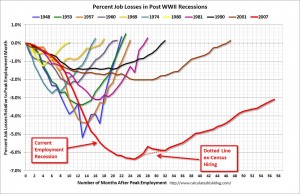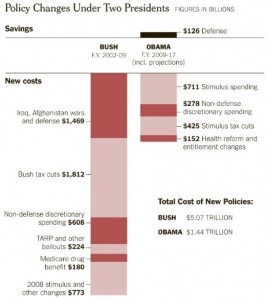A couple of people have let me know that my piece on the demise of the former UCI Bookstore has readers in the outside world, something I never would have guessed from the comments section here. Their reaction has been, “This is terrible! I never knew about this! How do we get our UCI Bookstore back? Do we protest, boycott, Occupy? You tell us to ‘despair.’ That can’t be right.”
The short answer is that it’s simply too late. There was a period of so-called “public comment” about a year ago which had a small number of takers. I think that the people who commented were, like me, ignored and put off, but that would have been the right time to raise a hue and cry.
At this point, the store has sold off practically all of its extant book inventory — tens of thousands of books. (I think there may still be a few hundred book SKUs (items) in the system that aren’t textbooks.) Some titles were sold to customers at reduced prices, some more recent titles were returned to the publisher at their original cost, and everything else went to a jobber who paid pennies on the dollar. The store has doubtless taken a big loss on those books, but consigning them has meant the store can free up shelf space for more profitable inventory, like plush anteaters.
Suppose, for the sake of argument, that a Save The Bookstore movement coalesced, and had at the top of its list of demands: “Bring back our books!” From a business perspective, this cannot be done. You cannot liquidate inventory at pennies on the dollar and then bring back the exact same inventory in at the regular wholesale price of 25-40% off list. If I were the Associate Vice Chancellor of Student Affairs, I would fire the Bookstore director who did such a thing. The only way out would be if a director could make a compelling case that the store could sell, say, at least three copies of each book every year. That is far in excess of the sales rate of the average trade book at the former Bookstore, which was .75 to 1 copy per year.
If the director were to commit to selling three copies of every title every year, the customers of the store would have to make a commitment to buy them. I could see a sort of Kickstarter-style campaign, where people would agree to reserve $25, $50, or $75 book gift certificates, good for one year and not redeemable for cash, in their names. If the inventory were funded up to or over a certain level, say, $75,000, the donors would be charged, the certificates issued, and the inventory purchased. Without such a setup… we know what that looks like already, where well-intentioned people loved the Bookstore so much, they bought all their books online. When I think about the Bookstore in this respect, I think of Abie Glassman, the Jewish peddler from John D. Fitzgerald’s Great Brain children’s books. Glassman came to stay and sell notions in Fitzgerald’s fictional Mormon community. He cared about his customers, and he was beloved. Nonetheless, he starved to death because nearly everyone went to the official Mormon ZCMI store; it was simply more expedient for them to do so.
The idea of a crowdsourcing campaign gets to the bottom of “how to get our store back.” The argument for the destruction of the Bookstore was economic; any counter-argument, at least in the current reality, will have to be economic as well. A university bookstore is a business. It brings money into the University. When that money dwindles, it means that there is less to support University programs, and, especially when State money keeps getting scarcer, administrators have to fill the gap, period. Anyone who wants to bring the UCI Bookstore back will have to come up with a realistic business plan of his or her own, one that fills that gap over the long term, or comes very close.
I said, “at least in the current reality.” In the world of principles, which is where many readers reside, things are — or, should be — different. Access to books, and the promotion of higher forms of literacy, should be parts of a university’s mission. Libraries, by their nature, go only so far with this mission; every book acquired must be argued for, and every book acquired must help develop a collection. A real university bookstore is not under these constraints; people are exposed to the streams of fiction and non-fiction in real time, and they can get what they want without contending with someone else’s loan period. What is that worth? Could a university bookstore be operated, not as a profit center, but as the part of the educational enterprise that encouraged reading? Those who play the zero-sum game would ask, “Which would you rather have: a real university bookstore or more students getting financial aid?” I invite you to think your way out of that question.
***
This is, perhaps, too harsh a place to end, so I will return to an earlier time. When I was a graduate student and entry-level worker at the Bookstore, there was a frequent customer from the English department named Professor Homer Obed Brown. He was known at the store both for his benevolence and amiability, and for his besottedness with books. When, in my capacity as a graduate student, I would go into his office, every horizontal surface would be piled four or five feet high with books, the library’s mingled with his own. When, in my capacity as a Bookstore worker, I would walk with him through the store, we would talk, and he would absentmindedly slip books into his basket, until at last he would present himself at the register with some twenty-odd books at a time. I would like to think that, if he were alive today and had known of the Bookstore’s problems, he would have solved them by buying up the literary criticism section outright.






